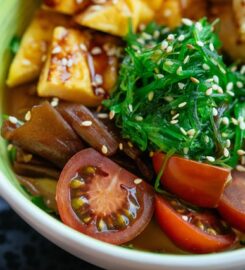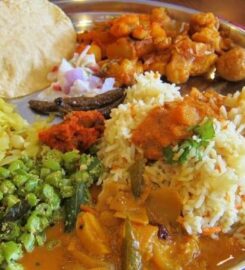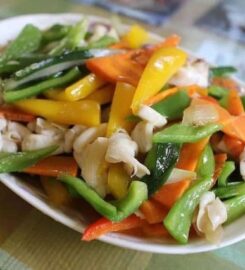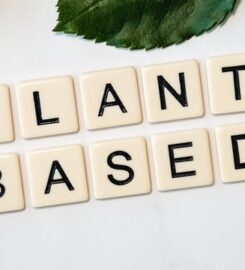
Restaurant Metta Vegan 慈悲緣素食
Vegan restaurant
Vegetarian Foods
Vegetarians don’t eat meat for a range of health, environmental, ethical, religious, or economic reasons. There are many different types of vegetarianism.
Vegetarian diets contain various levels of fruits, vegetables, grains, pulses, nuts, and seeds. … Lacto vegetarians: vegetarians who avoid animal flesh and eggs, but do consume dairy products. Ovo vegetarians: vegetarians who avoid all animal products except eggs.
Indian Vegetarian
The Indian vegetarian diet is known as Lacto-vegetarian. It includes dairy but excludes eggs. Most vegetarians in India avoid eggs, which has spawned a large egg-free baking dessert repertoire. … Grains, pulses, dairy, and vegetables are the main food groups in the Indian vegetarian diet.
Chinese Vegetarian
Besides a large variety of vegetables, Chinese vegetarian food often uses tofu (soft or dried bean curd), nuts, mushrooms, fungi, and water plants as its ingredients. … This is especially true for the vegetarian restaurants that are associated with Buddhist temples or institutions and may surprise a Western vegetarian.
Vegan and Vegetarian
No doubt, you have heard about vegetarians all your life. And maybe more recently, you’ve heard more and more about vegans. For some, the term appeared without much explanation. Has the term “vegetarian” been shortened to “vegan?” Is “vegan” a new synonym for vegetarian, or is it something entirely different?
Differences Between Vegan and Vegetarian
A vegetarian excludes meat, poultry, and seafood from their diet. Some vegetarians also exclude dairy, some don’t, and some may consume eggs. Likewise, vegans avoid meat, poultry, and seafood, but they also take it a step further by eliminating all animal products from their diet. This includes any type of animal milk and eggs. Vegans avoid foods produced using animals or animal products in any way, including honey. Many vegans also avoid household products, clothing, or other items made from animal products or tested on animals.





